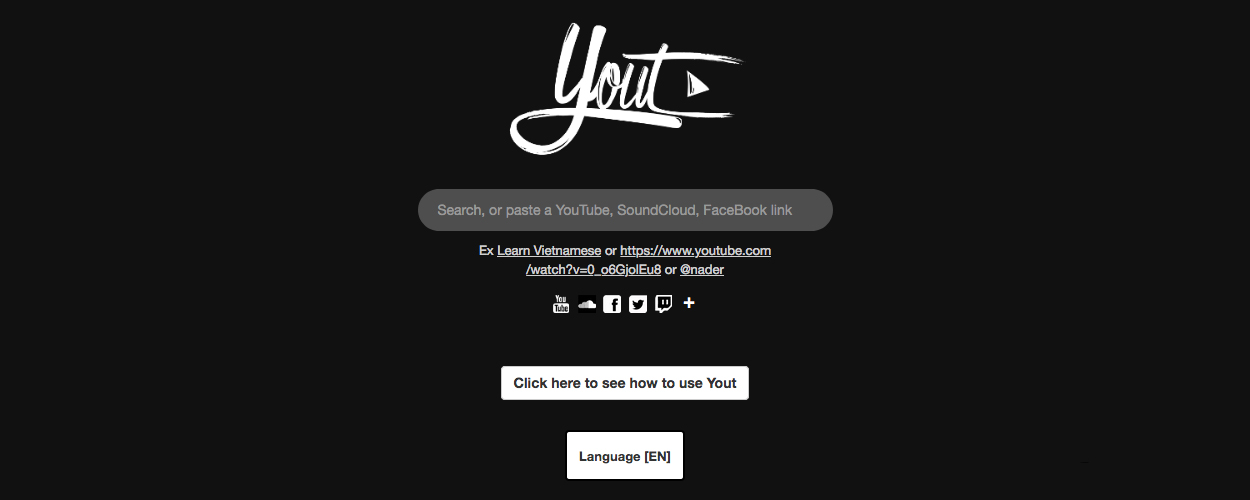This website uses cookies so that we can provide you with the best user experience possible. Cookie information is stored in your browser and performs functions such as recognising you when you return to our website and helping our team to understand which sections of the website you find most interesting and useful.
Business News Digital Labels & Publishers Legal
RIAA says Yout lawsuit should be dismissed
By Chris Cooke | Published on Tuesday 19 January 2021

The Recording Industry Association Of America has called for a lawsuit filed against it by stream-ripping service Yout.com to be dismissed. The record label trade group says that Yout has misrepresented the US Digital Millennium Copyright Act twice in its lawsuit, which argues that the RIAA acted illegally when it urged Google to de-list the stream-ripping site from its search engine.
The RIAA requested the Google de-listing on the basis that Yout had violated the DMCA by circumventing “YouTube’s rolling cipher, a technical protection measure, that protects our members’ works on YouTube from unauthorised copying [and] downloading”. Such circumvention breached a provision in the DMCA that “prohibits circumventing a technological protection measure put in place by a copyright owner to control access to a copyrighted work”.
However, in its lawsuit Yout stated: “Contrary to defendants’ allegations, Yout’s software platform is not designed to descramble, decrypt, avoid, bypass, remove, deactivate, or impair the YouTube rolling cypher technology. In fact, any digital mechanism in place designed as anti-circumvention technology stops Yout users from recording and saving that protected work, thereby demonstrating Yout’s compliance with any anti-circumvention protections in place”.
The stream-ripping site then went further and alleged that it was, in fact, the RIAA that had violated the DMCA by misrepresenting the nature of its service to Google, causing Yout tangible harm, including cancelled subscriptions and the closure of its Paypal account.
In its response, the RIAA says that Yout definitely is circumventing a technological protection measure that has been put in place by YouTube to protect the content of the copyright owners it has licensing deals with.
Yout’s claims otherwise, the labels say, are based on an incorrect definition of “technological projection measure”, in which basically the stream-ripping site claims that – because it’s possible to circumvent YouTube’s technological projection measure – it can’t be a technological protection measure.
RIAA states in its new legal filing: “Plaintiff contends that the DMCA does not proscribe bypassing the YouTube rolling cipher because the rolling cipher is not effective at restricting access to the sound recording files”.
“But the law is clear”, it adds, “that a technological measure’s effectiveness is judged from the perspective of an ordinary consumer, and plaintiff tacitly admits that the rolling cipher is effective because without it, the ordinary consumer would only be able to listen to, and not ‘record’ and ‘store on the user’s computer in the form of an MP3 file’ – ie copy – ‘the audio of a streamed video’ on YouTube”.
Therefore, what the RIAA told Google – ie that Yout is violating the DMCA – was, in fact, correct. And even if it wasn’t, the RIAA then says, it still wouldn’t be in breach of the DMCA itself.
Because while the DMCA does prevent a copyright owner from issuing a bogus takedown notice against content that is not infringing, or which it does not own, those rules do not cover statements about the general legality of a service.
The RIAA’s legal filing goes on: “Plaintiff does not allege that RIAA reported copyright infringement to Google. Instead, plaintiff alleges that RIAA reported that the Yout service circumvents YouTube’s rolling cipher, which is a distinct legal issue. This allegation does not and cannot constitute a [DMCA] violation, because the statute does not proscribe alleged misrepresentations regarding circumvention”.
With all that in mind, the RIAA concludes, the court should dismiss Yout’s lawsuit. We await to see how Yout responds.





